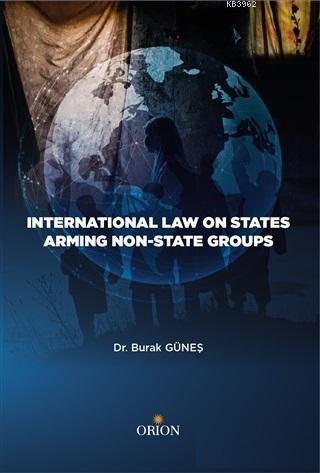9786059524711
717656

https://www.hesapli24.com/international-law-on-states-arming-non-state-groups-on-kapakinternational-law-on-states-arming
International Law On States Armıng Non - State Groups - ön kapakInternational Law On States Armıng
19.94
In this book, I assess the possible legal basis for states arming non-state groups (NSG) active within other states in order to determine the legality of such activity and address possible outcomes in the doctrine of international law as a result of its prevalence. There seem to be two main camps in the study of international relations theory that advocate contrasting justifications for this activity, implying different legal consequences emanating from it. Scholars or practitioners operating within a "Realpolitik" intellectual framework appear ultimately to question the legal validity of such actions. Scholars that operate within intellectual frameworks deriving from transcendental norms of international law have a more accommodative approach.
Broadly speaking, the debate is between two camps, with each camp seeking to define the contours of legality for such support. Therefore, in this piece, I seek to evaluate the inherent contradictions of international legal doctrine where various grey areas in the matter effectively prevent international law from providing one simple solution that might be applicable to all cases. I argue that, because international law is so flexible in resolving normative problems, this doctrine means that states eventually resort to the ‘arsenal of powers' to solve international problems.
Dr. Burak Güneş
In this book, I assess the possible legal basis for states arming non-state groups (NSG) active within other states in order to determine the legality of such activity and address possible outcomes in the doctrine of international law as a result of its prevalence. There seem to be two main camps in the study of international relations theory that advocate contrasting justifications for this activity, implying different legal consequences emanating from it. Scholars or practitioners operating within a "Realpolitik" intellectual framework appear ultimately to question the legal validity of such actions. Scholars that operate within intellectual frameworks deriving from transcendental norms of international law have a more accommodative approach.
Broadly speaking, the debate is between two camps, with each camp seeking to define the contours of legality for such support. Therefore, in this piece, I seek to evaluate the inherent contradictions of international legal doctrine where various grey areas in the matter effectively prevent international law from providing one simple solution that might be applicable to all cases. I argue that, because international law is so flexible in resolving normative problems, this doctrine means that states eventually resort to the ‘arsenal of powers' to solve international problems.
Dr. Burak Güneş
Yorum yaz
Bu kitabı henüz kimse eleştirmemiş.












